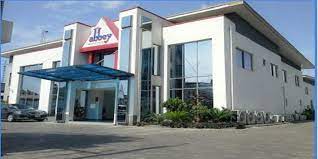
Abbey Mortgage Bank Plc, one of the few quoted primary mortgage institutions (PMIs) grew its total assets by 86 per cent, from N18.25 trillion to 34.46 trillion, last year demonstrating resilience and return to profitable operation.
This comes as the bank eyes full commercial bank status with a plan to enter the competitive market as a regional player.
The Chief Executive Officer of the bank, Mobolaji Adewumi, disclosed this in his statement at the bank’s annual general meeting (AGM) held in Lagos.
“In the coming months, we will commence the process of converting to a regional bank to drive our business expansion aspirations. The conversion to a commercial licence will increase our service offerings to our customers and facilitate improved value creation for our stakeholders,” Adewumi told the shareholders.
The bank had unveiled a new strategic vision a few years ago. Subsequently, VFD Group Plc acquired 35 per cent stake in the old PMI with a commitment to work with the team to reposition for efficiency and better performance.
With VFD’s acquisition of 35 per cent stake in the PMI, the company urged its shareholders to look forwards to more robust corporate earnings in the coming years.
In the last financial year, its loans and advances rose from N4.79 trillion to N6.16 trillion, showing a growth rate of 28.6 per cent while deposits were up 45.4 per cent to hit N21.2 billion.
The bank, which marked three decades of operation this year, also recorded a similar improvement in its bottom line, rising from a loss position in 2020 to record a profit before tax (PBT) of N661 billion. In the comparative period, Abbey posted an N4.3 trillion loss.
Its earning per share (EPS) rose from -62.65 kobo posted in 2020 to 8.86 kobo.
In the financial year, it grew its earnings from N1.52 billion to N3.68 billion – a growth of over N140 per cent. Its net operating income moved from a negative region of –N2.91 trillion to N2.18 trillion.
Chairman of the board, Mazi Emmanuel Okorafor, said the impressive performance followed the bold decision by the board to address some legacy challenges two years ago, noting that the results reflect the outcome of the new strategic direction.
“Like many other sectors, Nigeria’s real estate and mortgage sector have been severely affected by the advent of the Covid-19 pandemic in recent years. There has been a strong squeeze in consumers’ purchasing power, resulting in low effective demand for housing while the high cost of construction meant property prices increased. Increased prices of property and raw construction materials also meant that rental figures soared,” he said.






